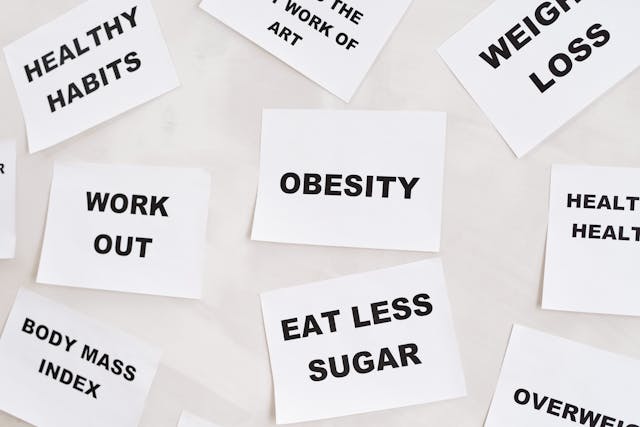Obesity is a challenge many people face, and starting a weight loss plan can feel like a huge accomplishment. However, what happens when your obesity plan slips? Whether it’s missing workouts, indulging in unhealthy food, or hitting a plateau, setbacks are normal. What truly matters is how you recover and regain momentum. Let’s dive into effective strategies to get back on track and continue working towards your health goals.
Acknowledge the Setback Without Self-Blame
One of the worst things you can do after a slip is to blame yourself. Self-blame leads to emotional eating, inactivity, and feeling defeated. Instead, recognize that this setback is just a temporary pause, not a failure.
What you should do:
- Identify the trigger: Was it stress, emotional eating, or a busy schedule? Understanding why you slipped can help you avoid future challenges.
- Be kind to yourself: Don’t beat yourself up. Treat yourself with compassion and focus on moving forward.
Reevaluate Your Obesity Plan
Sometimes, your plan may be too ambitious or unrealistic. Now is the perfect time to evaluate whether your obesity management plan suits your lifestyle.
What you should do:
- Set smaller, achievable goals: Break larger goals into smaller, manageable steps. For example, focus on losing 5 pounds at a time instead of 50.
- Adjust your approach: If your current diet or workout plan isn’t working, try something new. Consider different options like low-carb diets, intermittent fasting, or new workouts such as walking or swimming.
Reset Your Healthy Habits
When your plan slips, it’s easy to feel out of control. But you can quickly regain focus by resetting the healthy habits you worked hard to build.
What you should do:
- Get enough sleep: Poor sleep can increase cravings for junk food and reduce your motivation to exercise. Aim for 7-9 hours of quality sleep.
- Stay hydrated: Drinking water helps control hunger and supports digestion. Make sure you’re drinking at least 8 glasses of water a day.
- Prep your meals: Preparing meals ahead of time can prevent unhealthy food choices. Focus on nutrient-dense foods like vegetables, lean proteins, and whole grains.
Seek Support
Weight loss is a journey, and it’s easier with a strong support system. Surrounding yourself with people who understand your goals can keep you motivated.
What you should do:
- Get professional help: Work with a nutritionist, personal trainer, or therapist for personalized advice.
- Join a community: Connect with people facing similar challenges. Support from others can help keep you accountable.
- Talk to family and friends: Let them know about your goals so they can support and encourage you.
Reframe Your Mindset
Instead of seeing a setback as a failure, reframe it as a learning experience. Each slip teaches you more about your triggers and how to better manage them in the future.
What you should do:
- Embrace the process: Understand that weight loss isn’t linear. Expect ups and downs, but keep moving forward.
- Track progress differently: Instead of only focusing on the number on the scale, track how your clothes fit, energy levels, and fitness improvements. These non-scale victories are key indicators of progress.
- Visualize your success: Imagine how you will feel and look when you achieve your goals. Visualization can help keep you motivated.
Tackle Emotional Eating
Emotional eating is often a reason for setbacks in weight management plans. Addressing this issue directly is essential to staying on track.
What you should do:
- Recognize emotional triggers: Keep a food journal to identify patterns between your emotions and eating habits.
- Develop healthy coping mechanisms: When stress or emotions arise, try meditation, deep breathing, or a hobby to distract from emotional eating.
Exercise Consistently, Start Small
After a slip, it’s tempting to try and overcompensate with long workouts. However, this approach often leads to burnout. Consistency is more important than intensity.
What you should do:
- Start small: If you’ve fallen off your workout routine, start with 10 minutes a day and gradually increase.
- Add movement throughout the day: Take the stairs, go for short walks, or fit in small exercises throughout your day.
- Vary your activities: Prevent boredom by trying different exercises like strength training or dancing.
Conclusion
Slipping on your obesity plan doesn’t mean the end of your journey. By recognizing the setback, adjusting your goals, resetting your habits, and getting support, you can get back on track. Stay patient, be kind to yourself, and remember that progress is progress, no matter how small.










